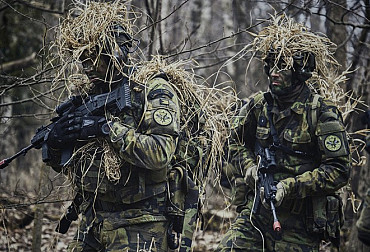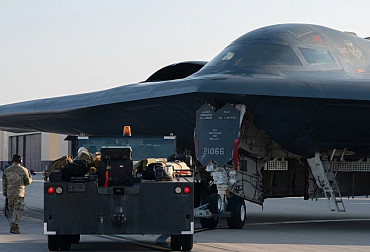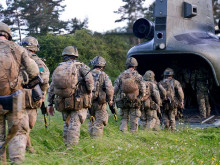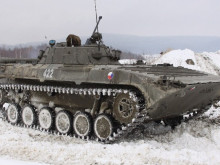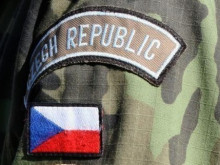Britain and Germany have signed a historic defense agreement. They have already demonstrated their mutual cooperation on the Rhine
The United Kingdom has signed its first bilateral defense agreement with Germany since World War II. It focuses on mutual assistance in the event of an enemy attack, combating illegal migration, and supporting military and economic cooperation. The willingness to cooperate on international missions was illustrated at the end of July by a joint logistics mission on Europe's largest commercial waterway, the Rhine River. Germany wants to significantly increase the number of active military personnel, and cooperation with Britain, among others, is expected to help achieve this goal.
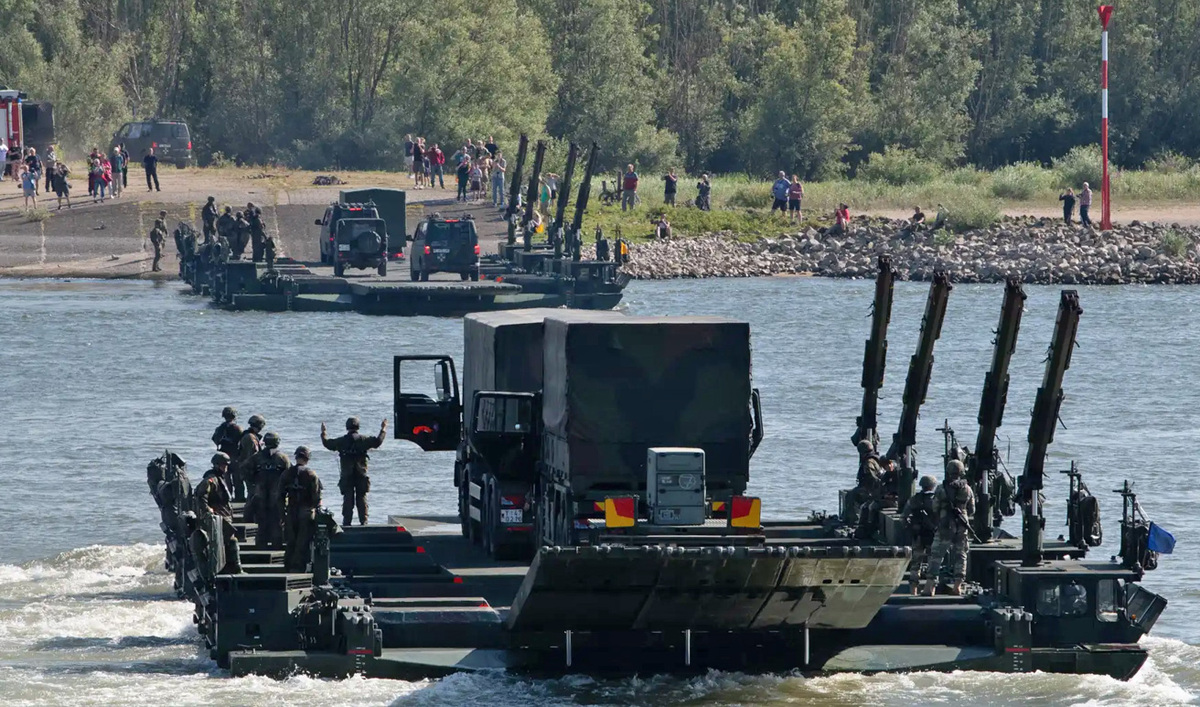
This is an important strategic agreement between countries that were enemies 80 years ago. Since the horrors of Nazi rule in the 1940s, Great Britain and Germany have been working to rebuild their relations, as illustrated in particular by their cooperation within the EU and NATO. After Brexit, the North Atlantic Alliance is all that remains for both countries, but given the challenges arising from the change in the US's approach to its European partners since Donald Trump took office and Russia's ongoing aggression in Ukraine, both countries feel the need to deepen their relations with the rest of Europe and forge new ties. An example of this is the historic agreement reached by London and Berlin in July, which focuses precisely on cooperation in defense and security.
"This is a historic day for German-British relations. We want to achieve closer cooperation, especially after the UK's departure from the European Union. Such an agreement should therefore have been concluded between us long ago," said Friedrich Merz, who was himself surprised that this was the first such agreement between the two countries since the end of World War II, speaking to reporters after the signing during his first visit to the British Isles as German chancellor.
"This is a historic day for German-British relations" – @bundeskanzler.
— German Embassy London (@GermanEmbassy) July 17, 2025
Germany and the UK have signed a landmark friendship treaty at the Victoria and Albert Museum. pic.twitter.com/z8Rb0etXql
In particular, it confirms the alliance pact on mutual defense in the event of an external attack and assistance with the security challenges of today's world. "This is the first agreement of its kind. This is confirmation of our ambition to cooperate at a closer level," continued British counterpart Kier Starmer. Both countries emphasize another key point of the new agreement, which is the fight against illegal migration—a problem that has been increasingly troubling both Britain and Germany in recent years, albeit on different scales. While Germany is battling gangs of smugglers who use the country as a transit point for refugees or as their final destination, Britain is seeing increasing numbers of migrants arriving from France by sea or through the Channel Tunnel.
"Chancellor Merz has committed to making the necessary changes to German law to help stop the supply of dangerous vessels used to transport illegal migrants across the English Channel," Starmer added. The necessary adjustments on the German side are to be completed by the end of the year and should effectively help break up organised criminal groups that use warehouses in Germany to store small boats and ships used for illegal entries into Britain by sea.
The two biggest supporters of Ukraine in Europe have reaffirmed their commitment precisely because of the continuing threat from the east and as a signal to Russia that they will not be intimidated. Moscow, through its Foreign Minister Sergey Lavrov, has already expressed concern about the growing arms build-up, particularly in Germany, which the current aggressor is comparing to World War II – paradoxically at a time when it is continuing to murder Ukrainian civilians with increasingly fierce air strikes on the occupied country. A specific result of the announced cooperation is, for example, the opening of a factory in the UK for the German start-up Stark, which supplies unmanned aircraft to Kyiv.
Britain and Germany are also to cooperate on the production of new Boxer armored vehicles, the European Typhoon fighter jet project, and the development of tactical ballistic missiles. Both countries have also committed to greater cooperation on cyber threats and information warfare, as well as military exercises. They demonstrated this a few days before the end of July during a logistics maneuver mission on the Rhine River. The task of NATO Exercise Global Crossing was to cross one of Europe's largest rivers and most important commercial waterways in an international cooperation between engineers from Italy and the Netherlands. Over 1,200 soldiers and hundreds of special vehicles took part. The mission was designed to simulate a similarly demanding task in the event of actual deployment of armed forces and cooperation between multinational teams, as well as the coordination of their often diverse equipment and procedures.
"This is a great opportunity for all soldiers from the 23rd Amphibious Engineer Regiment, because we can work with another nation, learn from their experience, and effectively improve together," commented group commander Major Ryan Ingram. The star of the simulation was the German M3 amphibious pontoon, which can be connected together to enable heavier equipment to cross larger rivers. The British deployed a total of 14 of their amphibious vehicles to assist with rehearsing movements, refueling, and coordinating armies on the water.
Both countries also want to focus on supporting opportunities for young people, not only within the armed forces. The agreement includes a clause on mutual student exchanges, with Chancellor Merz emphasizing the importance of "getting to know both countries by the younger generation." According to the German government, the younger generation is also key to expanding the ranks of the army. By 2031, it wants to recruit 40,000 new young conscripts per year, up from this year's target of 15,000 18-year-olds interested in joining the army. The number of new recruits is thus set to increase by 3,000 to 5,000 each year in order to meet the new NATO standards. Interest is to be encouraged through international cooperation and opportunities for new recruits to take part in interesting missions abroad, such as in Britain.











